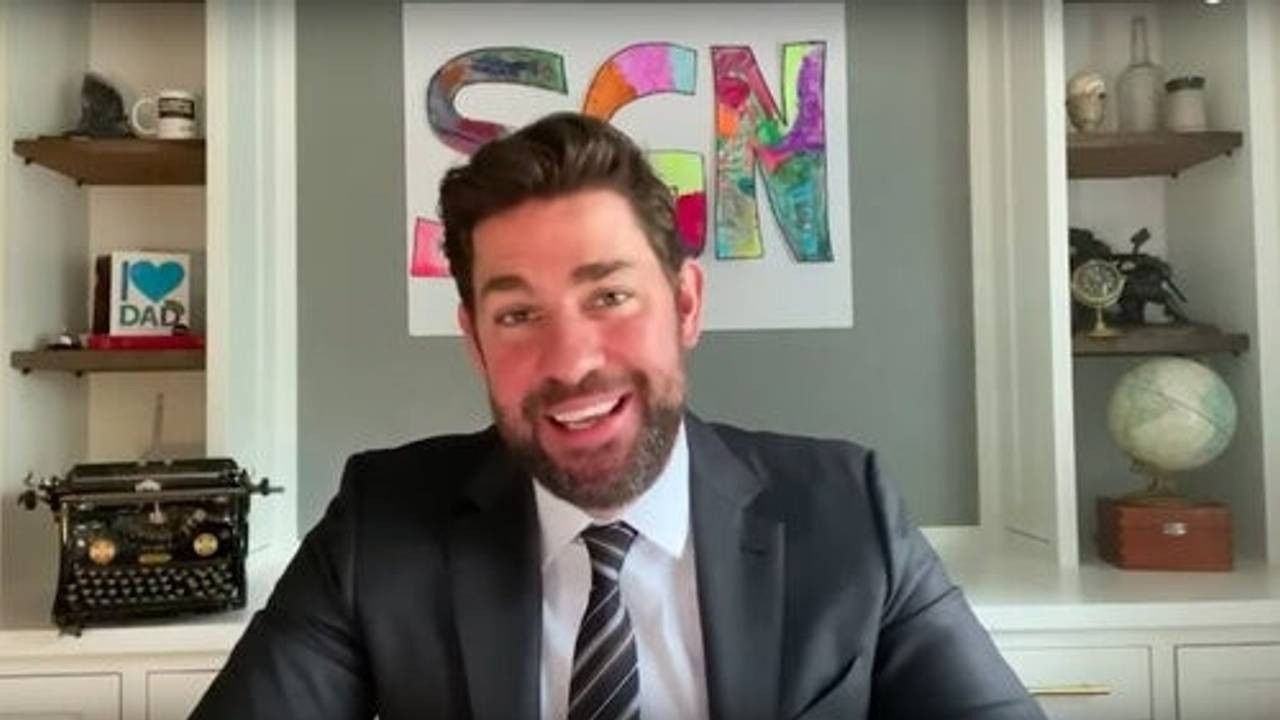It's Okay to Get Paid to do Good Things: A John Krasinski Case Study
Sep 30, 2022
by Laura Chynoweth
This post was originally published on The Grantsplainer on 7/10/2020.
In April, the worl--desperate for something other than the latest COVID-19 pandemic infection numbers--was delighted by the launch of John Krasinski’s YouTube series Some Good News. Filmed in Krasinski’s home office, all episodes give exclusive focus to positive stories from across the globe. Featuring celebrity Zoom calls, special guests, and Krasinski himself as host, the series became an instant hit, and as of this writing, had 2.6 million subscribers.
Just one month later, though, many fans were outraged when Krasinski sold the series to ViacomCBS, a move they viewed as “selling out.” As one Twitter user snarkily put it: “Pandemic side-hustles are most effective when they start out as benevolent volunteer activities then suddenly pivot to for-profit.” Another sarcastic tweet said “Remember when he created this free feel good YouTube show to “make people feel good” and now he is................selling it for $$$? really cool, 100% honorable."
What I don’t understand is, well, any of these sentiments. Assuming the content and quality of Some Good News will be the same as it was prior to being sold, it will still accomplish good in the world. So, why shouldn’t its creator get paid for it? Why is the decision to receive pay in exchange for work for “the greater good” deemed “selling out” or not honorable?
I think how we answer these questions has a lot to do with what we, in the U.S. at least, have been trained to believe about interactions between money and “good” actions. Perhaps it’s time for us to re-examine some of these societal core beliefs, namely that:
- Benevolent volunteer activities hold more value / accomplish more good than paid activities;
- And benevolent activities that earn money are “selling out.”
While I don’t argue that activities carried out on a volunteer basis are valuable, they are neither free nor sustainable in the long term. I find it strange that we get upset when corporations--nonprofits are corporations too--are paid for providing goods and services to community members in need, but we don’t bat an eye when other corporations are paid for creating products that do not serve those in need. When a celebrity comes out with a perfume line, it rarely enrages the public. However, if a nonprofit spends more than 25% of their income on salary, everyone loses their mind--not understanding that without a living wage, the nonprofit would have no one to run it at all. Money earned or received as a donation can be invested in maintaining the consistency of quality and format of the “good” the corporation is offering. About Some Good News (not a nonprofit), Krasinski himself said “I was only planning on doing [eight episodes] during quarantine....I knew it wouldn’t be sustainable with my prior commitments."
Another layer deep, and there’s one more belief to address: volunteering for a good cause should be done “out of the goodness of one’s heart,” and one should expect nothing in return for volunteering. While I don’t doubt that volunteers carry out benevolent activities because they care, they certainly receive something in return for their work. Just ask any higher ed-bound high school junior or senior where they got the skills they’ve listed on their college applications.
Additionally, “selling out” is not an objective determination. The point at which one “sells out” is different based on who you ask. I have an author friend who was chastised by some of her purist fellow writers who thought her commercial publication of a novel was “selling out.” This kind of “starving artist” belief perpetuates the idea that work completed without the creator receiving anything in return holds the most value. This is simply not true. “Selling out” has been defined as the “compromising of integrity, morality, authenticity, or principles in exchange for personal gain, such as money.” I counter that an exchange of money for honor or vice versa is not necessary. Furthermore, this concept of forgoing cash in order to maintain the appearance of good intentions is frequently applied to nonprofit work, and it holds nonprofits back from receiving the funding that would allow them to boost their effectiveness.
In talking with Granted Fundraising Consultants’ COO Aliess Kingsley about all this, she added that she suspected one more idea at play in the case of Some Good News: Many believe that if the person carrying out a benevolent activity already has money from other endeavors, they should not earn money for said activity. Granted Fundraising Consultants believes that having money does not mean people cannot make valuable, for-the-greater-good contributions to the world. No one has questioned the morals or integrity of the likes of Bill Gates or Warren Buffett-- both men are of incredible wealth and both men have created benevolent activities for the greater good. They've done this while also continuing to amount even greater wealth. (Besides, who determines how much money precludes a person from payment for what they create for the greater good? Like the concept of selling out, this is a moving target.)
In sum, doing good is doing good, no matter who gets paid (or doesn’t) for it. It’s time for us to reorganize our thoughts about what kind of work should and should not be paid. We must allow people and corporations (nonprofits especially) to fill their own buckets, so they can continue to fill others’. Some Good News was a serious bright spot at a time when people really needed it, and it can still fill that role if we will let it.
Laura Chynoweth is the Founder & CEO of Granted Fundraising Consultants.

